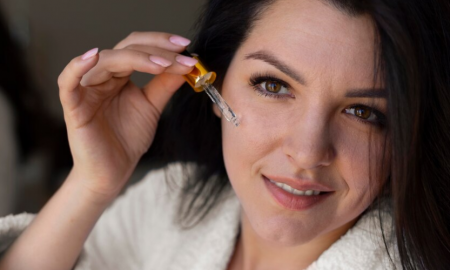
Midlife: How to Live an Ache-Free Life in Your 40s, 50s & Beyond

Midlife is a unique stage of life – typically spanning the ages of 40 to 60 – where both your body and mind begin to change in noticeable ways. You might find that, seemingly out of nowhere, extra pounds creep on despite eating the same foods or maintaining your regular routine.
New aches and pains may become a daily companion, and tasks that once felt easy could now leave you feeling more fatigued. It is a time when the realities of aging become clear, and taking care of your health and wellness becomes more important than ever.
How to Ensure Mental and Physical Well-being in Your Midlife?
The key to wellness in midlife begins with what you put on your plate. Your metabolism slows down as you age, which means that your body doesn’t burn calories as efficiently as it once did. This makes it vital to focus on nutrient-dense foods.

Ivan / Pexels / Incorporating more fruits, vegetables, lean proteins, and whole grains helps you stay energized and supports your body’s changing needs. And, of course, avoid processed foods and excessive sugars.
Another important factor is staying hydrated. Your body’s ability to regulate water decreases as you age. So, it is essential to drink plenty of fluids throughout the day. Hydration supports digestion, keeps your skin supple, and helps manage hunger. Ensuring a diet full of nutrients and proper hydration will keep you feeling strong and balanced during midlife.
Keep Your Body Moving
Staying active in midlife is crucial for maintaining both physical and mental health. As you age, muscle mass naturally declines, which can lead to decreased strength and stamina. Regular exercise – particularly strength training and aerobic activities – helps combat this decline.
Remember, just 30 minutes a day of moderate activity can make a world of difference. Incorporating regular physical activity into your routine can help you feel more energized and capable of handling whatever life throws your way.
Ensure Quality Sleep
Sleep plays a critical role in maintaining health and wellness, but many people experience changes in sleep patterns during midlife. Hormonal fluctuations, stress, and lifestyle changes can all contribute to disrupted sleep. This can lead to fatigue, irritability, and even an increased risk of chronic conditions like heart disease.

Cotton Bro / Pexels / To ensure you get enough rest, create a consistent bedtime routine and make your sleeping environment as comfortable as possible.
Limiting screen time before bed, avoiding heavy meals late at night, and practicing relaxation techniques can also improve sleep quality. Ideally, aim for 7-8 hours of rest each night, as proper sleep not only helps with physical recovery but also keeps your mind sharp and emotions balanced.
Create Social Connections and Purpose in Midlife
Midlife is often a time when social roles shift. Kids may be leaving home, relationships evolve, and career responsibilities might change. These transitions can lead to a sense of loneliness or a feeling of loss of purpose.
However, maintaining strong social connections and finding a renewed sense of purpose is essential for both mental and physical health. Staying connected with friends, family, and your community provides emotional support and reduces the risk of depression, which is more common in midlife.
Consider exploring new hobbies, volunteering, or even pursuing a second career or passion project. Engaging in activities that bring you joy and fulfillment can give your life a renewed sense of purpose and direction. These positive relationships and activities will help you thrive in midlife, rather than simply getting through it.
More in Health Insurance
-
`
Chad Smith and Will Ferrell Drum-Off – A Night of Comedy and Music
The year was 2014. The late-night talk show landscape was abuzz with a brewing battle unlike any other. It wasn’t a...
July 8, 2024 -
`
Can Coughing Cause Back Pain?
Back pain is a common complaint among many individuals, but did you know that a simple action like coughing can exacerbate...
July 5, 2024 -
`
How to Overcome Imposter Syndrome?
Imposter Syndrome is a familiar term many recognize as a psychological state where individuals doubt their accomplishments, fearing that others will...
June 27, 2024 -
`
Which Peptides Are Best for Anti-Aging?
For those seeking to combat the signs of aging and maintain a youthful appearance, the world of skincare can feel overwhelming....
June 18, 2024 -
`
Celebrities with Celiac Disease – Inspirational Stories and Struggles
Celiac disease is a serious condition, and even the rich and famous aren’t immune. Many celebrities have been open about their...
June 10, 2024 -
`
How to Fix Poor Sleep Hygiene for Better Rest
Sleep is a fundamental human need, as crucial for our well-being as a healthy diet and regular exercise. Yet, many people...
June 6, 2024 -
`
5 Easy & Effective Ways of Coping With Depression
Depression is more than just feeling sad or having a bad day. It is a pervasive mental health condition that affects...
May 30, 2024 -
`
Top 10 Practical 60th Birthday Ideas For Everyone
Turning 60 is a milestone worth celebrating! Whether you are planning your own bash or organizing a celebration for a loved...
May 24, 2024 -
`
What is the Meaning of Angelina Jolie’s Back Tattoo? Explore
If you have ever caught a glimpse of Angelina Jolie’s back tattoo, you might have wondered, “What is the story behind...
May 17, 2024















You must be logged in to post a comment Login